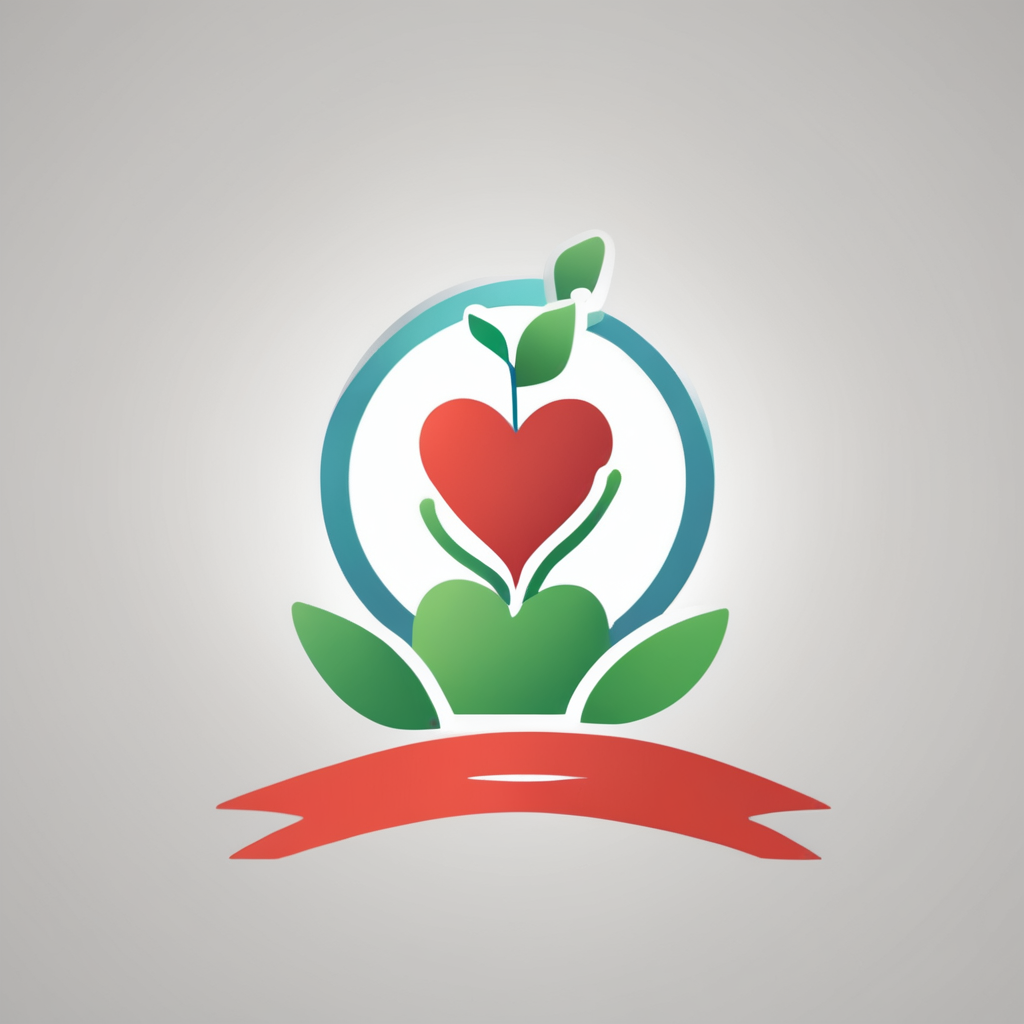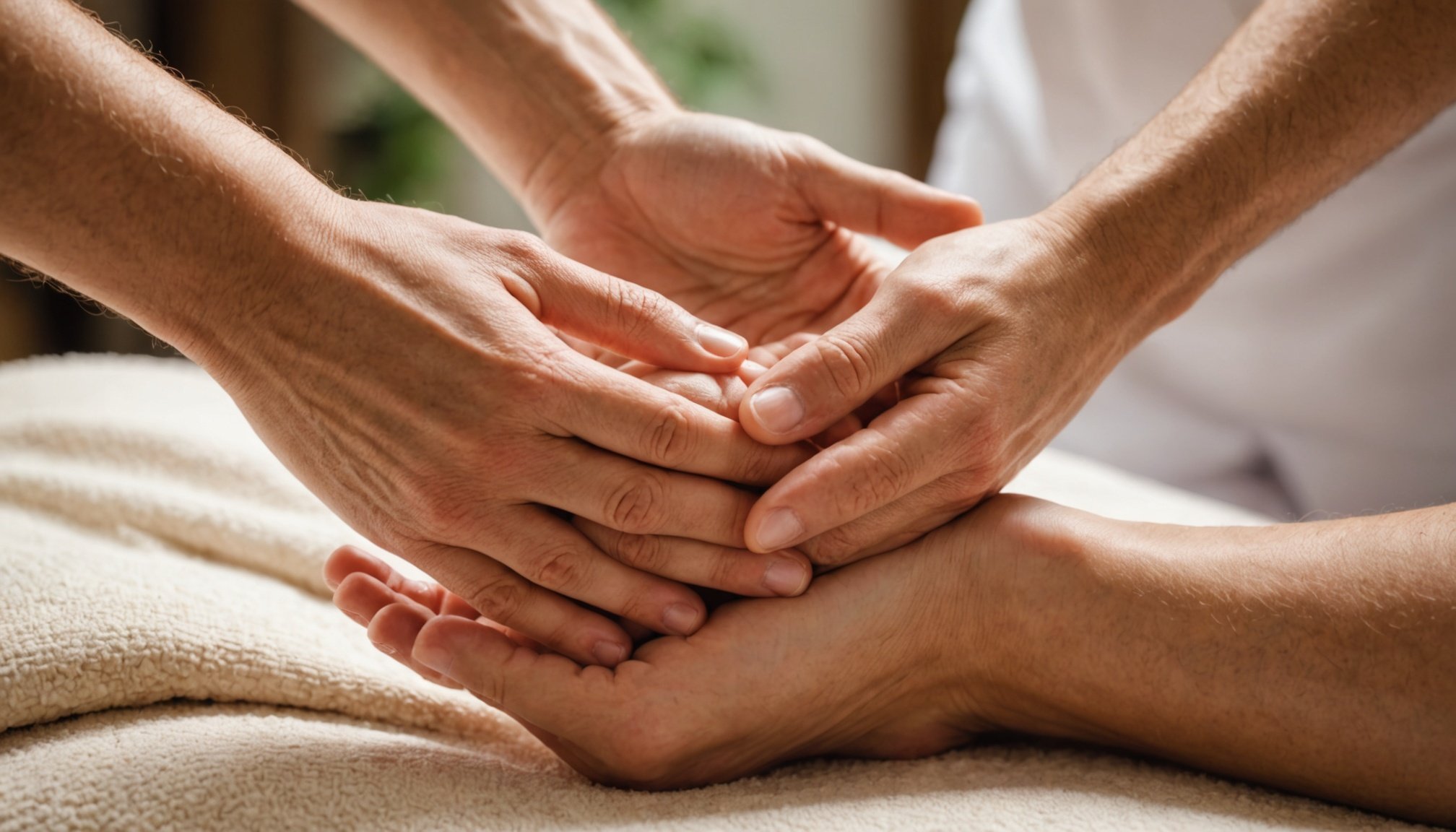Overview of Reflexology and Stress Relief
Reflexology is a type of holistic therapy that involves applying pressure to specific areas of the feet, hands, or ears. This practice is grounded in the belief that certain points on these extremities correspond to different organs and systems within the body. The history of reflexology dates back to ancient Egypt, China, and India, where it was used as a therapeutic method to balance the body’s natural energy flows.
An important aspect of reflexology is its connection to stress relief. By targeting precise regions, reflexology aims to alleviate tension and promote relaxation throughout the body. It is thought that by stimulating these areas, energy pathways are cleared, thereby reducing stress levels and enhancing overall well-being. According to many practitioners, reflexology not only aids in reducing stress but also improves circulation and encourages the body’s natural healing processes.
In the same genre : Top Strategies for Effective Management of Type 1 Diabetes in Children Across the UK
A typical reflexology session involves a practitioner applying targeted pressure to specific points on the feet. These treatments are tailored to the individual’s needs, often beginning with a discussion about health concerns and continuing with focused therapy. Overall, reflexology offers a non-invasive way to manage stress and achieve a state of balance within the body.
Benefits of Reflexology for Stress Management
In the quest for effective stress management, the benefits of reflexology stand out, offering a holistic approach to achieving relaxation. By concentrating pressure on specific points of the feet and hands, reflexology can significantly aid in the reduction of stress hormone levels. This practice helps balance physiological responses, decreasing the release of cortisol, a key stress hormone.
In the same genre : Top Strategies for Helping UK Teenagers Conquer Anxiety: Effective Techniques for Mental Wellness
One of the major benefits includes the improvement of sleep quality. For many, stress often results in disrupted sleep patterns, leading to fatigue and decreased functioning. Reflexology promotes relaxation techniques that induce a state of calm, thereby enhancing sleep quality and assisting in anxiety reduction. A well-rested individual is often more resilient to stress and better equipped to handle daily challenges.
Furthermore, reflexology supports emotional balance and mental clarity. By fostering a serene mind space, individuals experience an improved sense of emotional stability. This leads to clearer thinking and better decision-making capabilities. The relaxation techniques inherent in reflexology aid in grounding individuals, helping them maintain emotional poise even in stressful environments. The combined benefits offer a comprehensive solution for managing stress and improving overall well-being.
Scientific Evidence Supporting Reflexology
Reflexology has garnered attention for its potential stress-relieving capabilities, underpinned by several scientific studies. These studies aim to solidify reflexology as an evidence-based therapy, highlighting its possible benefits.
In reviewing reflexology research, one pivotal study revealed a notable decrease in stress levels in participants post-treatment. The controlled environment allowed researchers to observe consistent patterns across multiple subjects, raising confidence in reflexology’s therapeutic promise. However, critics argue that certain methodologies lack rigor, often pointing to small sample sizes and insufficient control groups as limitations.
Experts in the field of complementary therapy offer nuanced views. Some recommend reflexology as an effective stress management tool, advocating its integration with conventional therapies. Others urge caution, pointing out that scientific studies often show varying results due to diverse participant experiences and placebo effects.
Despite mixed findings, the continuous accumulation of research fosters a deeper understanding. Comprehensive studies with larger cohorts and standardized protocols could further validate reflexology as an evidence-based therapy. As such, ongoing dialogue between practitioners and researchers is essential to enhance credibility and guide future investigations.
Practitioner Insights and Experiences
Reflexology practitioners bring a wealth of knowledge and experience to the table, allowing clients to benefit from their expertise in stress management. Many professionals have shared insightful testimonials about their journey and the impact reflexology has on their clients.
These testimonials often highlight personal success stories, recounting instances where clients have experienced significant stress relief. Clients frequently mention how reflexology sessions with experienced practitioners have helped them manage stress more effectively, promoting improved overall well-being. One recurring theme in these client stories is the transformative power of regular reflexology practice.
Practitioners utilize a variety of common techniques aimed at alleviating stress. These methods include targeted pressure application on specific reflex points, which are believed to correspond with different body organs and systems. Such techniques are rooted in the philosophy that stimulating these points can improve circulation, promote relaxation, and restore balance across bodily systems.
Professional insights often reveal a deep understanding of client needs and articulate the importance of customized approaches for individual stress relief. Practitioners emphasize that ongoing reflexology practice and personalized sessions are key to maximizing stress management benefits, showcasing their expertise and authority within this therapeutic field.
Comparing Reflexology to Other Stress Relief Methods
When it comes to managing stress, a variety of alternative stress relief methods are available. Popular options like yoga and meditation dominate this space. Both focus on achieving mind-body balance. Yoga combines physical postures with breathing techniques to enhance flexibility and reduce stress. Meditation, on the other hand, is about fostering mental clarity and inner peace through focused attention or mindfulness.
Reflexology, a holistic approach, sets itself apart by specifically targeting tension points in the feet, believed to correspond to other parts of the body. This results in a direct channel of interaction with your body’s natural energy pathways. One key advantage of reflexology is its ability to provide immediate physical relaxation and mental relief without requiring significant physical exertion or mental focus, unlike yoga and meditation.
Particularly beneficial in situations where other stress relief methods may not be practical or accessible, reflexology can be performed quietly and comfortably in seated or lying positions. Notably, it’s especially advantageous for individuals who might find physical activity challenging due to health constraints. Ultimately, reflexology offers a unique way to manage stress, appealing to those seeking a hands-on, calming experience that aligns with their body’s innate responses.
Finding Reflexology Centers in the UK
Embarking on a journey to find reputable reflexology centers in the UK may seem daunting at first, but with some simple strategies, it can be a seamless experience. A key aspect of locating services is to ensure the center is registered with a reflexology association, as this guarantees adherence to professional standards.
When considering notable reflexology centers, it’s beneficial to look at recommendations and reviews from previous clients. Locations across various regions, from London to Edinburgh, offer a wide array of specialists known for their expertise. This diversity allows individuals to choose centers that meet their specific needs.
Choosing the right professional practitioners is crucial. Prospective clients should enquire about the practitioner’s qualifications and experience. Many professionals are adept at adapting techniques to cater to individual health needs, which can significantly enhance the therapy experience.
Tips for choosing the right practitioner:
- Research Credentials: Verify the practitioner’s certifications and memberships with recognised bodies.
- Consult Reviews: Look for feedback from other clients to gauge satisfaction and outcomes.
- Personal Preference: Consider whether you prefer a soothing environment or a more clinical setting.
Remember, selecting the right practitioner can make a world of difference in your reflexology journey.
Practical Tips for Maximizing Reflexology Benefits
Embracing reflexology as part of your wellness journey requires mindful planning and consistent practice. To truly reap the maximizing benefits of this approach, start with these reflexology tips.
Before beginning a reflexology session, ensure that you are comfortable and in a relaxed environment. Take deep breaths and centre yourself. This preparation helps you to be more receptive to the therapy. After sessions, it is equally vital to drink plenty of water. This assists in detoxifying the body and enhancing the therapy’s effects.
Incorporating reflexology into a regular wellness routine can enhance its long-term benefits. Consider setting aside specific times each week for your sessions. This frequency aids in reinforcing the body’s balance and promotes self-care strategies that are sustainable.
Furthermore, it’s important to advocate for yourself when exploring stress relief techniques. Communicate openly with your therapist about any discomfort or preferences you may have. Self-advocacy empowers you to tailor the experience to meet your unique needs, maximizing the potential benefits of reflexology. Engaging with reflexology is not just about the physical aspect but also about nurturing your mind and spirit.











